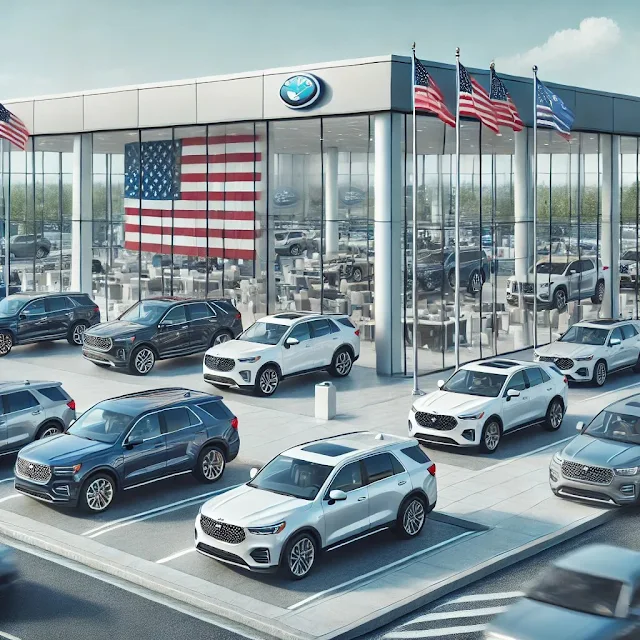Explore everything you need to know about car dealerships in the U.S. – types, services, tips for choosing the right one, and future trends. Find your perfect car today!
Car Dealerships in the United States: A Comprehensive Guide
Car dealerships play a crucial role in the automotive industry, acting as the bridge between manufacturers and consumers. In the United States, car dealerships are not just about selling cars; they are about providing a comprehensive service, from financing options to maintenance and repair services. This article delves deep into the world of car dealerships in the United States, offering insights into their operations, types, and the services they provide.
Understanding the Types of Car Dealerships
1. Franchised Dealerships
Franchised dealerships operate under agreements with specific car manufacturers. These dealerships sell new vehicles from their partnered brands, offer manufacturer-backed financing options, and provide certified maintenance and repair services. Examples include Toyota, Ford, and Chevrolet dealerships.
2. Independent Dealerships
Independent dealerships are not tied to a specific manufacturer. They primarily sell used cars and offer more flexibility in pricing and financing. These dealerships often cater to consumers looking for affordable pre-owned vehicles.
3. Buy Here, Pay Here Dealerships (BHPH)
BHPH dealerships cater to customers with poor credit histories. They provide in-house financing, making it easier for individuals to secure a loan. However, interest rates at these dealerships are typically higher than other options.
4. Online Dealerships
The rise of e-commerce has given birth to online car dealerships. Companies like Carvana and Vroom allow consumers to purchase vehicles entirely online, with delivery services that bring the car to their doorstep. These platforms often offer detailed vehicle histories, competitive prices, and flexible return policies.
Services Offered by Car Dealerships
1. Vehicle Sales
- New Cars: Franchised dealerships showcase the latest models with warranties and manufacturer-backed incentives.
- Used Cars: Both franchised and independent dealerships provide a variety of pre-owned vehicles that cater to different budgets.
2. Financing and Leasing
- Loans: Dealerships partner with banks and financial institutions to provide car loans.
- Leasing: Many dealerships offer leasing options for customers who prefer short-term use without full ownership.
3. Trade-Ins
Customers can trade in their old vehicles at dealerships, using the value as a down payment for a new or used car.
4. Maintenance and Repairs
Franchised dealerships often include service centers where customers can get their vehicles maintained or repaired using genuine parts.
5. Extended Warranties
Dealerships frequently sell extended warranties that cover repairs and maintenance beyond the standard manufacturer warranty.
The Role of Technology in Car Dealerships
Online Listings
Most dealerships now have websites featuring detailed listings of their inventory. Customers can browse through pictures, specifications, and prices without visiting the showroom.
Virtual Showrooms
Virtual reality (VR) is becoming a popular tool, allowing customers to explore cars inside and out from the comfort of their homes.
Digital Financing Tools
Online platforms enable customers to calculate loan payments, prequalify for credit, and complete much of the paperwork digitally.
Customer Relationship Management (CRM)
Modern CRM systems help dealerships track customer preferences and maintain long-term relationships.
Tips for Choosing the Right Dealership
1. Research Online Reviews
Websites like Google Reviews, Yelp, and Edmunds offer insights into customer experiences.
2. Compare Prices
Check prices for the same vehicle across multiple dealerships to ensure you're getting a fair deal.
3. Inspect the Vehicle
For used cars, always request a detailed vehicle history report and conduct a thorough inspection.
4. Negotiate
Don’t hesitate to negotiate on price, interest rates, or additional perks like extended warranties.
5. Check for Certified Pre-Owned (CPO) Programs
If you’re buying a used car, consider dealerships offering CPO programs, which include vehicles inspected and certified by the manufacturer.
Common Challenges Faced by Car Dealerships
1. Inventory Shortages
Global supply chain issues, including semiconductor shortages, have impacted vehicle availability.
2. Rising Competition
Online dealerships are providing stiff competition to traditional brick-and-mortar dealerships.
3. Evolving Consumer Preferences
The demand for electric vehicles (EVs) and hybrid cars is reshaping dealership strategies.
4. Compliance and Regulations
Dealerships must navigate complex state and federal regulations, including licensing and environmental laws.
The Future of Car Dealerships in the U.S.
1. Electric Vehicles (EVs)
As EVs gain popularity, dealerships are investing in charging infrastructure and staff training to support these vehicles.
2. Subscription Services
Some dealerships are experimenting with car subscription models, where customers pay a monthly fee to access a range of vehicles.
3. Enhanced Digital Experiences
Virtual showrooms, AI-powered chatbots, and augmented reality tools will continue to enhance the buying experience.
4. Focus on Sustainability
Dealerships are adopting eco-friendly practices, such as solar-powered showrooms and paperless transactions.
FAQ Section
1. What is the difference between franchised and independent dealerships?
Franchised dealerships sell new cars from specific manufacturers and offer certified services, while independent dealerships primarily sell used cars and have more flexibility in pricing.
2. Are online car dealerships reliable?
Yes, many online dealerships like Carvana and Vroom have built strong reputations for transparency and customer service. However, it’s essential to read reviews and verify the return policy.
3. Can I negotiate the price at a dealership?
Absolutely. Most dealerships expect customers to negotiate. Researching the market value of the car can strengthen your bargaining position.
4. What should I check before buying a used car?
Always request a vehicle history report, inspect the car for wear and tear, and, if possible, have a trusted mechanic assess it.
5. Do dealerships offer financing for bad credit?
Yes, many dealerships, especially Buy Here, Pay Here (BHPH) ones, specialize in financing options for customers with poor credit.
Conclusion
Car dealerships in the United States are an integral part of the automotive ecosystem. Whether you’re buying a new car, seeking a budget-friendly used car, or exploring leasing options, dealerships offer a wide range of services to meet diverse needs. By understanding the types of dealerships, services offered, and the latest trends in the industry, consumers can make informed decisions and enjoy a seamless car-buying experience.
.png)







0 Comments